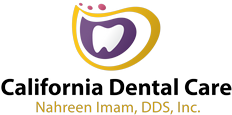Oral cancer is a serious health concern that often goes unnoticed in its early stages. Early detection can significantly increase the chances of successful treatment and recovery. This is why regular oral cancer screenings are essential for maintaining good oral health and preventing severe consequences.
Why Regular Screenings Matter:
- Early Detection: Regular screenings can identify precancerous conditions and early-stage oral cancers that may not present symptoms. Catching these issues early can lead to better treatment outcomes.
- Risk Factors: Certain factors increase the risk of oral cancer, including tobacco use, heavy alcohol consumption, and HPV infection. Those with higher risk should prioritize regular screenings.
- Comprehensive Examination: During an oral cancer screening, your dentist will examine your mouth, throat, and neck for any abnormalities. This thorough approach ensures that any potential issues are addressed promptly.
- Education and Awareness: Screenings provide an opportunity for dental professionals to educate patients about oral cancer, its symptoms, and prevention strategies, helping individuals take charge of their health.
- Peace of Mind: Knowing you are proactively monitoring your oral health can alleviate anxiety and help you feel more in control of your well-being.
What to Expect During a Screening:
- Visual Examination: Your dentist will inspect your mouth, gums, tongue, and throat for any unusual spots, lumps, or sores.
- Palpation: The dentist may gently feel the areas in your mouth and neck to check for any abnormalities.
- Discussion: After the examination, you’ll have a discussion about your oral health, any risk factors, and the importance of self-examinations at home.
Take Action:
- Schedule Your Screening: If it’s been over a year since your last oral cancer screening, consider scheduling an appointment with your dentist. Early detection is key!
- Know Your Risk: If you have risk factors for oral cancer, discuss them with your dentist to create a personalized plan for regular screenings and preventive care.


